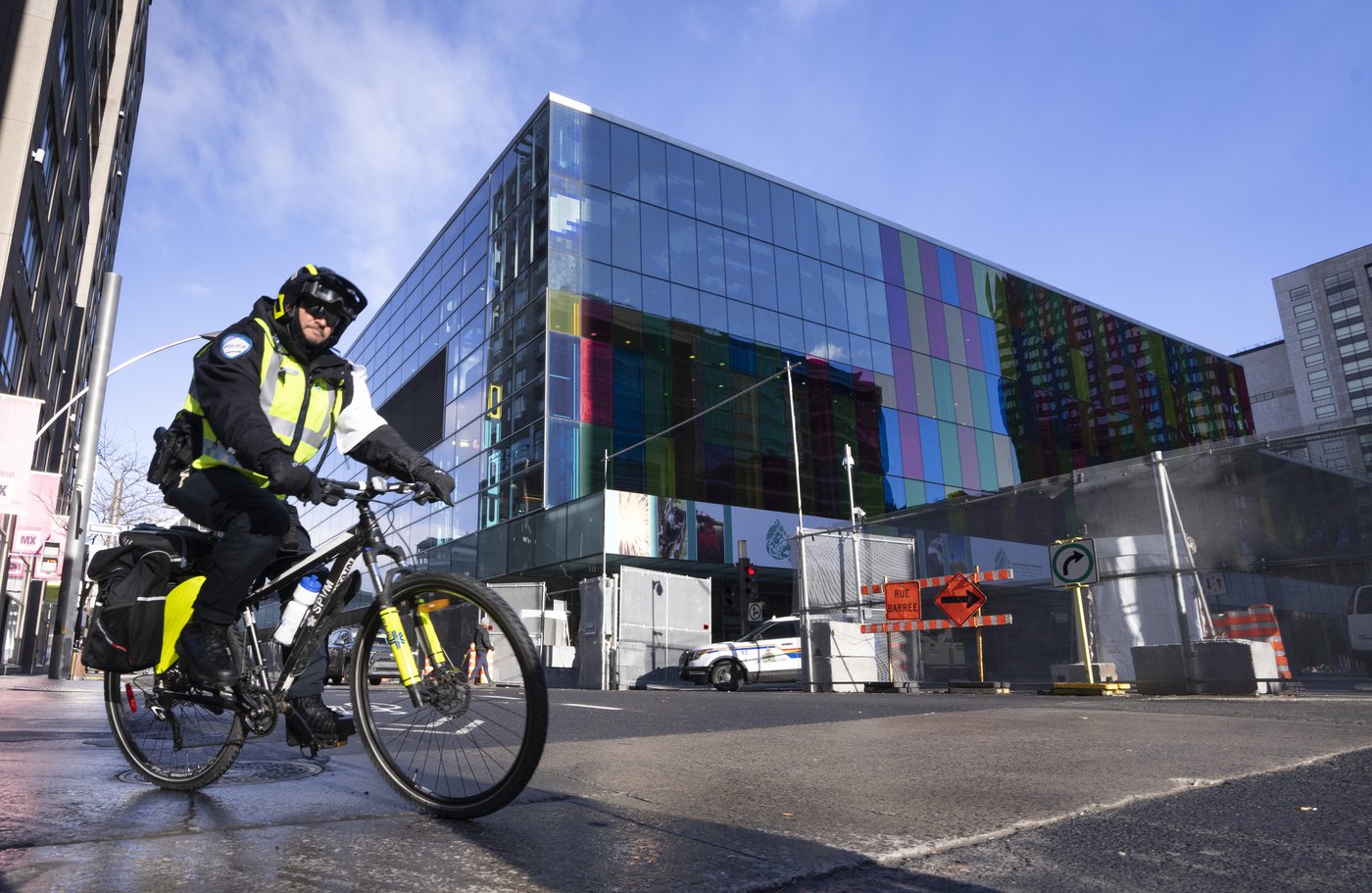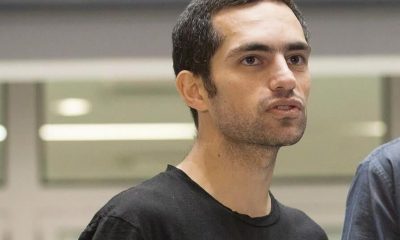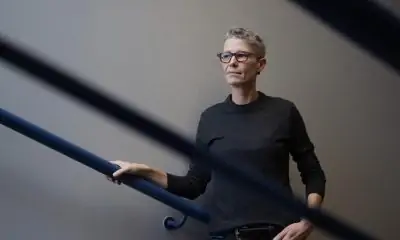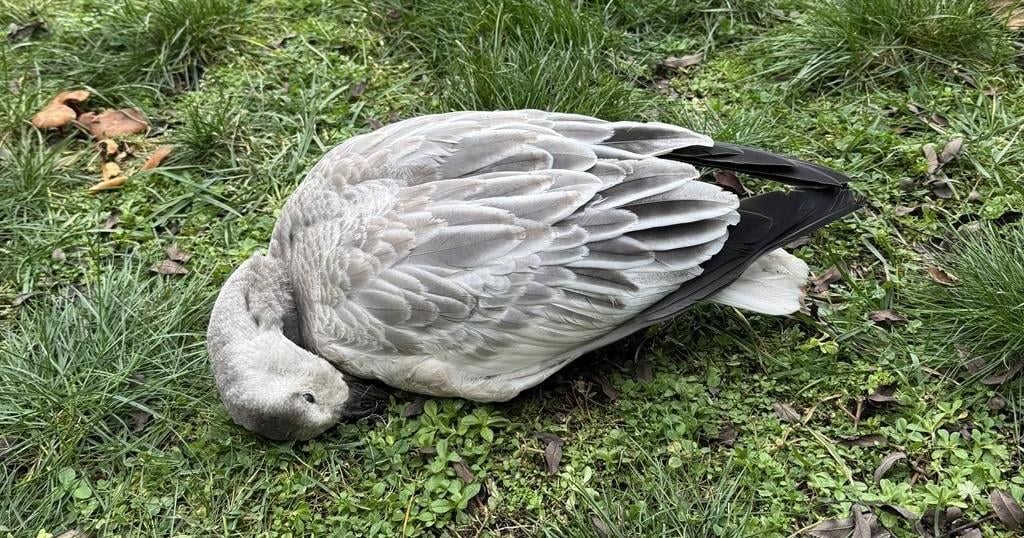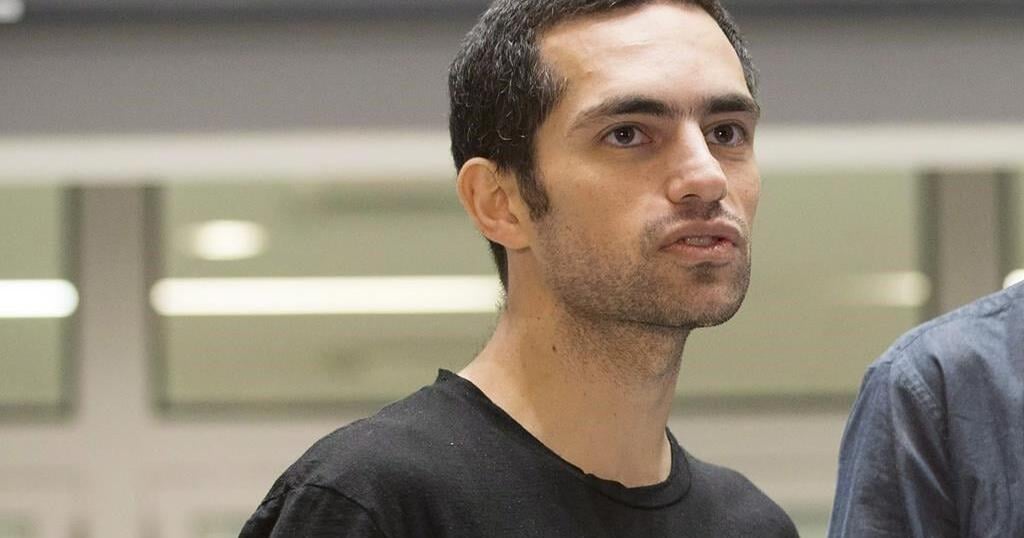CALGARY – Margaret Atwood has been called prescient — particularly when it comes to her famous 1985 dystopia “The Handmaid’s Tale” and the recent rollback of reproductive rights in the United States — but the renowned Canadian author says her predictive powers failed her ahead of last week’s U.S. election, which delivered Donald Trump another White House win.
“I searched. I invoked, ‘Oh God, let it be sun.’ But it was darkness all around,” she said to laughter Tuesday night at a forum hosted by the Alberta Teachers’ Association, Calgary Catholic Local 55 and Calgary Public Local 38.
Calgary’s Southern Alberta Jubilee Auditorium, with more than 2,500 seats, was nearly full for the discussion with Atwood about “democracy, public education and the common good.” She is to speak Wednesday at an event hosted by the Edmonton Public Library about “the importance of freedom of expression.”
Atwood said she hesitates to make blanket statements about what drives the American people because there are starkly different histories and sensibilities in every region.
“You have to get your mind around how other people think,” she said. “I think some people would shoot themselves rather than having a woman leader.”
But she said the populace is also less polarized than many would think.
The presidential race was like a “multiple choice questionnaire with only two choices,” when most people have “mix-and-match sets of values.” The Republicans were victorious in clinching the presidency, but at the same time ballot initiatives affirming abortion rights passed in several states.
Atwood may have drawn a blank on predicting the election’s outcome, but she said she does have some prognostications now that it’s been decided.
“Watch what goes on inside the White House … We have several people with quite large egos backed by two billionaires who also have large egos and who don’t like each other,” she said.
“I think bookies are going to start making book on how long Donald Trump is going to last because is he really necessary for these billionaires anymore? On the other hand, are they necessary for him? Who shall win?”
She also predicts “You’re going to hear a lot more talk about class than we’ve been having since the 1940s.”
Shortly after the U.S. Supreme Court overturned the landmark Roe v. Wade decision in 2022, undoing a half-century of federally protected abortion rights, Atwood wrote in “The Atlantic” magazine that she did not mean for Gilead, the totalitarian state in “The Handmaid’s Tale,” to become a reality.
“The Handmaid’s Tale,” since adapted into a Hulu television series starring Elisabeth Moss, takes place in the near future in what is now the United States. It is governed by religious fundamentalists, and beset by environmental calamity and plummeting birthrates.
Women are treated as property and some are forced to be “handmaids” — their sole purpose is to bear the children for wealthy, infertile, couples. Handmaids are marked by ultra-modest red garments and white conical bonnets that obscure their peripheral vision.
She told Tuesday’s forum that her ideas for “The Handmaid’s Tale” didn’t come from her own mind, but were inspired by discussions the religious right had been having.
“Not the outfits, but the core principles,” she quipped.
“Everything in the book has either happened or was happening somewhere, sometime. Because otherwise, people would say, ‘She’s really weird.'”
Atwood was asked by the event’s moderator whether people should be afraid.
“I don’t think we should be afraid at all, by which I don’t mean that there isn’t something horrible happening,” she replied.
“I mean that fear makes you feeble.”
She was also asked whether there is any comfort to be found in the famous Martin Luther King Jr. quote: “The arc of the moral universe is long, but it bends toward justice.”
Atwood replied: “This is what makes people give up on vigilance — ‘It’s all going to be fine, I don’t have to do anything because it’s bending toward justice all on its own.”
“That’s not real. There is no yellow brick road.”
This report by The Canadian Press was first published Nov. 13, 2024.

